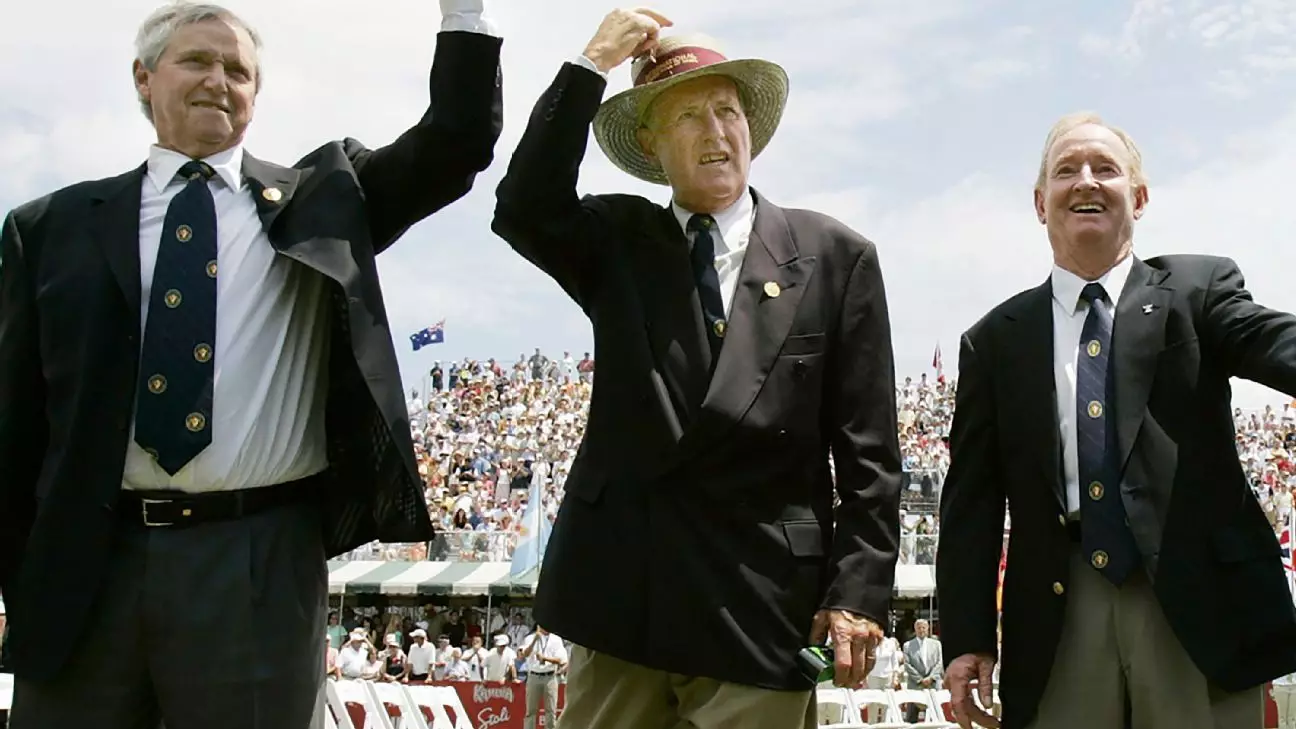Neale Fraser’s recent passing at the age of 91 marks a significant moment in the history of Australian tennis. His impressive 24-year career as both a player and a captain left an indelible mark on the sport, and Tennis Australia appropriately noted his contribution, calling him “one of its giants.” Framed within the golden era of the sport, Fraser not only amassed three Grand Slam singles titles but also led Australia to four Davis Cup championships—an accomplishment that speaks volumes about his impact on the game.
Fraser’s tennis journey was highlighted by notable achievements that defined his competitive edge. He famously defeated Rod Laver—considered one of the greatest tennis players of all time—in a thrilling Wimbledon final in 1960. This victory was one of many highlights, as Fraser made waves in the sport during the late 1950s and early 1960s, winning the US Open singles, men’s doubles, and mixed titles in back-to-back years. His 11 major men’s doubles titles—inclusive of victories at each Grand Slam—further accentuate his versatility and prowess on the court.
The tributes flowing in upon his death underscore the respect he commanded among peers. Laver poignantly reflected on their relationship, recognizing both their competitive spirit and Fraser’s role in elevating the game. Laver described Fraser as “a true gem,” encapsulating the essence of camaraderie and rivalry that characterizes sports at their best. The legacy of Fraser’s talent thrived amidst a vibrant tennis community, sparking inspiration in players like John Newcombe and Pat Cash.
Fraser’s influence extended beyond his playing days. He anchored the Australian Davis Cup team, rejecting professional offers to step into a coaching role that many might have envied. Assuming the role of national team captain in 1970, he guided his squad for over two decades, inspiring successive generations of players with his leadership style. His commitment to the sport and the Australian team ethos resonated profoundly, enabling a lineage of talent that would go on to achieve greatness.
Tennis Australia revealed that during his tenure, Fraser oversaw 24 Davis Cup campaigns, steering Australia to triumph on four occasions—his dedication and strategic approach solidified his reputation as an iconic figure in tennis history. In recognition of his contributions, Fraser was inducted into the International Tennis Hall of Fame in 1984, an accolade that mirrors his extensive achievements.
Fraser’s legacy wasn’t solely encapsulated in titles and accolades; it extended to the broader tennis community, where his tenacity and example inspired many. In 2008, he received the International Tennis Federation’s Philippe Chatrier Award, which celebrates exceptional achievement in tennis. This honor further emphasizes his significant role in shaping the sport’s narrative in Australia and beyond.
As the world reflects on Fraser’s life, it’s clear that his contributions will not fade with his passing. His profound influence and passion for tennis have cemented him as a legend within the sport, a testament to what can be achieved through hard work, determination, and a genuine love for the game.

